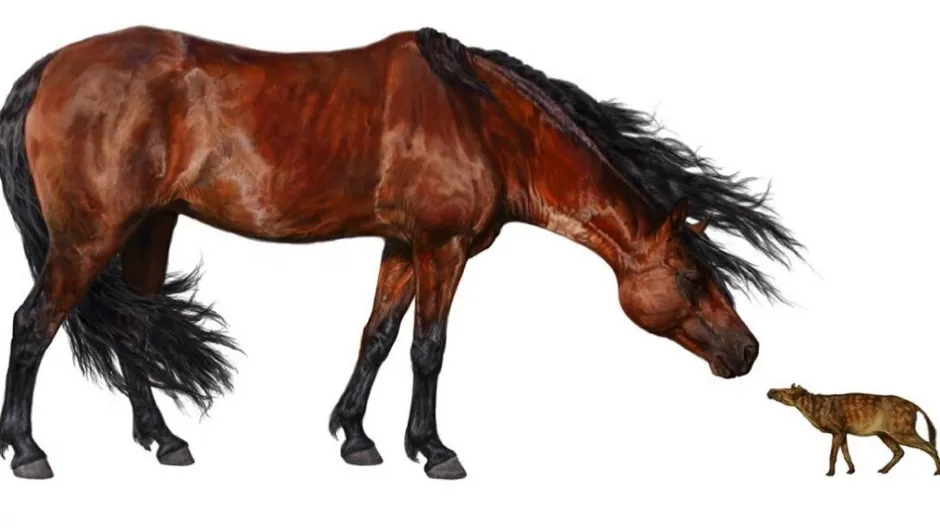We're all aware of some of the more publicised impacts of global warming: rising sea levels, extreme weather events, retreating glaciers. But amongst the despair there may be one small ray of hope: tiny horses.
Researchers led by a palaeontologist at the University of Michigan have found that when global warming occurred in the past, it resulted in an early ancestor of the horse decreasing in size by around 30%. This happened during a period of climate change snappily known as the Paleocene-Eocene Thermal Maximum (PETM), which occurred around 55 million years ago.
The palaeontologists collected teeth and jaw fossils of early hoofed mammals and primates from the ironically named Bighorn Basin in Wyoming. They then used the size of the molar teeth as a proxy for the body size of the animals.

The researchers also found that when the Earth went through a weaker phase of warming two million years later, known as the Eocene Thermal Maximum 2 (ETM2), it again resulted in a reduction of mammal size, although less pronounced. They suggest that the stronger the global warming, the more the mammals shrink.
It was the study’s leader, Professor Philip Gingerich, who suggested in 2006 that the shrinking mammal size could be due to the lower nutritional value of plants during warm periods, when carbon dioxide levels were higher. In these circumstances, plants grow rapidly but yield fewer nutrients to the mammals that eat them.
One of Gingerich’s collaborators, Professor William Clyde of the University of New Hampshire, said that understanding the past relationship between the size of mammals and global warming ‘‘may help us predict ecological changes that may occur in response to current changes in Earth's climate."
So if past events are anything to go by, the current increase in greenhouse gases could see our distant descendants riding around on some very small horses indeed.
Follow Science Focus onTwitter,Facebook, Instagramand Flipboard
